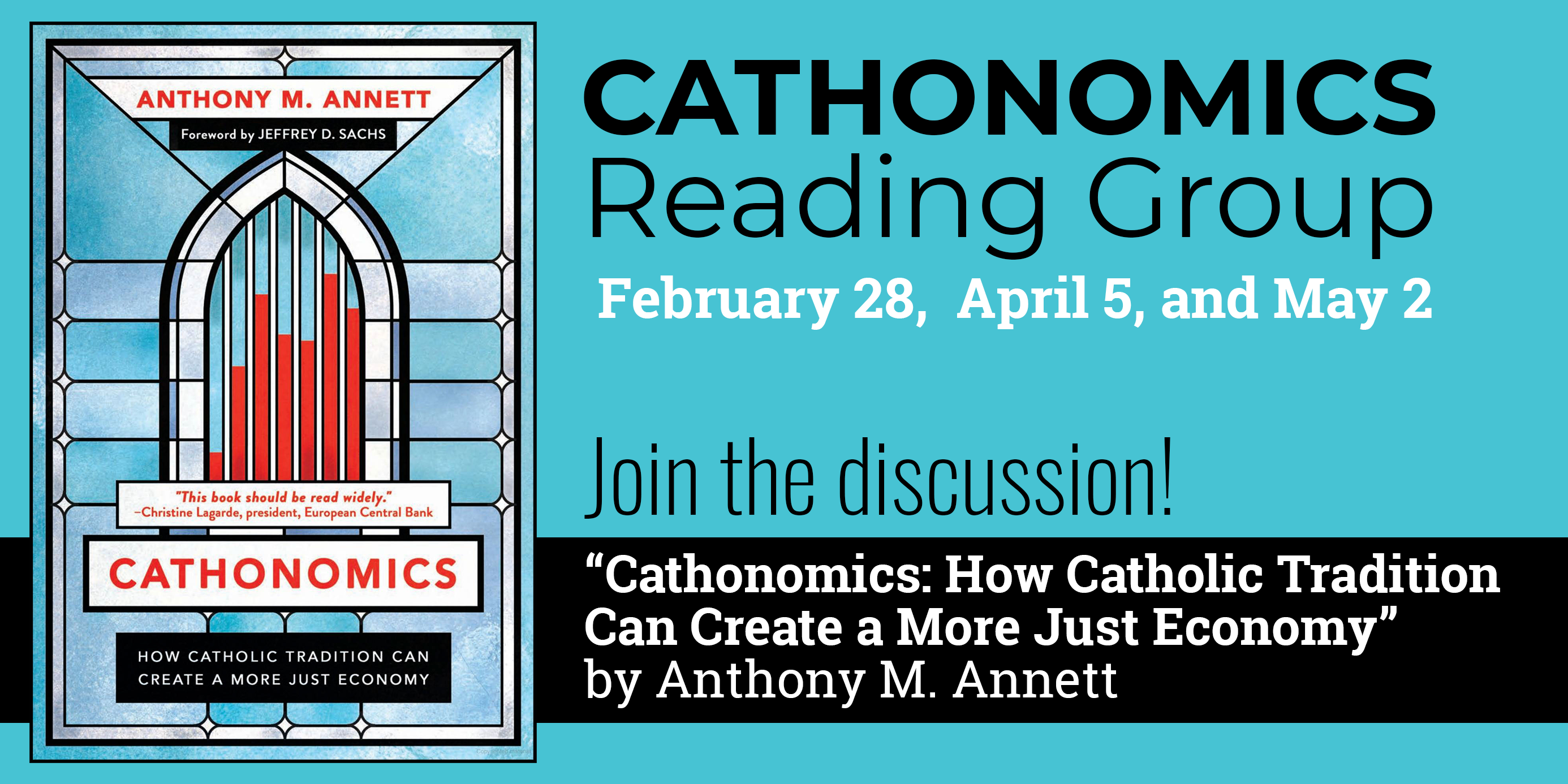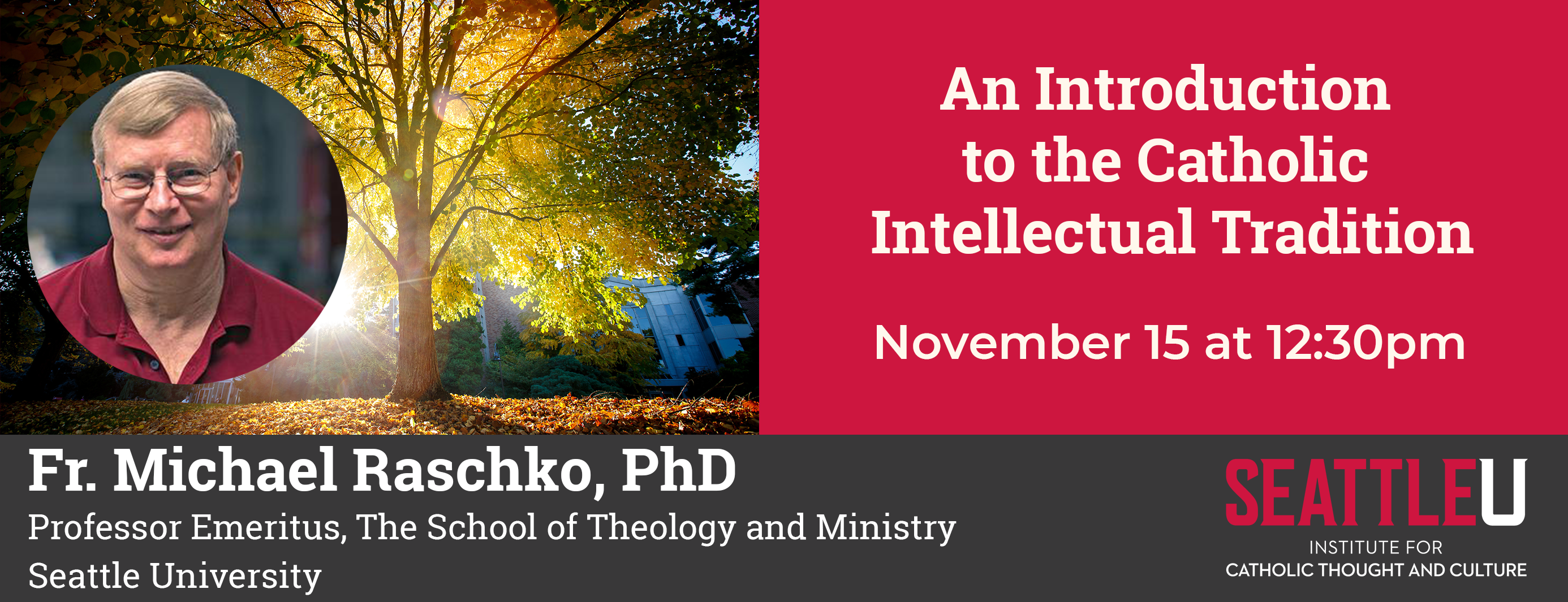
Catholic Intellectual Tradition CIT

Cathonomics Reading Group
Three sessions – please commit to at least two dates
Book and light lunch provided
RSVP to ICTC@seattleu.edu
Join ICTC and faculty from across disciplines in reading and discussing Cathonomics by Anthony M. Arnett. Cathonomics is an ethical and practical guide to readers of all faiths and backgrounds seeking to create a world economy that is more prosperous, inclusive, and sustainable for all. Annett unites insights in economics with those from theology, philosophy, climate science, and psychology, exposing the failures of neoliberalism while offering us a new model rooted in the wisdom of Catholic social teaching and classical ethical traditions. Read more about the book and author here.
-
Session 1: Tuesday, February 28, 12:30-1:45pm
Facilitated by Dr. Michael Jaycox, Associate Professor, Theology and Religious Studies
-
Session 2: Wednesday, April 5, 12:30-1:45pm
Facilitated by Dr. Jason Wirth, Professor and Chair, Philosophy
-
Session 3: Tuesday, May 2, 12-1:15pm
Facilitated by Dr. Jessica Imanaka, Associate Professor, Management (Albers School of Business and Economics) and Philosophy

An Introduction to the Catholic Intellectual Tradition
Fr. Michael Raschko, PhD, Professor Emeritus
Tuesday, November 15, 12:30-2pm in Hunthausen 110
Lunch provided
RSVP to ICTC@seattleu.edu
Fr. Michael Raschko, Professor Emeritus, School of Theology and Ministry, returns to SU for this special lecture! Open to all, we hope this opportunity will enhance and expand upon your understanding of the the Catholic Intellectual Tradition in your work and studies. Fr. Raschko will look at the two major ways Christianity has engaged Western culture; trace in large strokes how that engagement took place up to the Reformation; and conclude by examining some of the ways Catholicism engaged Western culture when the institutional Church refused to do so.